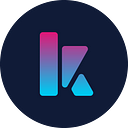Understand GO-QLC token economy and how to benefit from it
Go-QLC v1.0 will be available on March 31st after which all community members will be able to visit Github to download and access the official version of GO-QLC v1.0.
GitHub: https://qlcchain.github.io/tutorial/getstarted/#qlc-chain-introduction
The mainnet brings to life the Global SMS Billing system, helping Montnets and its clients reduce tens of billions USD operational costs. This is an evolutionary step in telecom billing and telecom security fields, and QLC holders will be the first to benefit from this evolution.
Go-QLC will also introduce some amazing features — public chain attached staking contracts, including token mintage contract, voting power contract, and Confidant usage contract. Every QLC holder can stake their Nep-5 QLC to deploy the contracts, get access to various applications, functions and at the same time receive Q-Gas. (Let’s call it Q-Gas for now)
What is Q-Gas
Q-Gas is the fuel token on Go-QLC. Q-Gas will be consumed when a communication service provider deploys its service on Go-QLC.
For instance, carriers CMCC international deploy their clearance business on QLC Chain, and every inter-carrier transaction confirmation will require Q-Gas consumption. QLC holders can sell their earned Q-Gas to carriers for profit from the market function in QLC Chain Wallet or supported exchange. Carriers can also purchase QLC for staking and earn Q-Gas, to reduce its clearance cost.
QLC Chain major features include not only clearance but also 1) distributed security (e.g. digital ID authentication, privacy encryption and on-premise storage) 2) distributed billing (e.g. trusted billing, anti-fraud billing and phone bill payment) 3) P2P addressing (digital identity and chord network optimization based on IPv6).
In summary, Q-Gas are required when access to the telecom services involved for example billing, ID authentication, storage, P2P addressing etc. The first application rolled out is Confidant — the privacy focused communication platform.
We believe that this is an evolutionary step forward in the telecom billing and telecom security field, and QLC holders would be the first to benefit from it.
How to get Q-Gas
- Stake your QLC to earn Q-Gas
QLC holders can stake their NEP-5 QLC and Q-Gas will be airdropped to their Go-QLC wallet on a daily basis.
How to stake QLC for voting power?
Go-QLC adopts dPoS consensus. Staking NEP-5 QLC will acquire voting powers on a 1:1 ratio. Owner of a sufficient amount of voting power will become a master node which confirms the transactions on the network.
Stake any amount of QLC for 6 months:
Q-Gas earning = your staked QLC / staked QLC from the whole network x Q-Gas amount to be distributed per day (number to be released)
How to stake QLC for Confidant usage?
Confidant is the first consumer-oriented application on Go-QLC that consumes Q-Gas. It is the most trusted privacy-focused communication platform, facilitating end-to-end message encryption, peer-to-peer file transfer and private cloud storage in a completely decentralised way. The communication content between you and your counterparty can never be accessed by any third-parties, enabling any individual to reclaim the ownership of their data.
Confidant will be activated with Q-Gas in your wallet.
How to stake QLC for token mintage?
Holders can stake 10,000 QLC for a period of 6 months to be qualified to issue a token for their services. Go-QLC has already embedded SMS billing functions and will support security, addressing and more telecom services for the convenience of every entity deploying those services on the public chain
- Be a QLC Chain miner and earn Q-Gas
QLC Chain will deploy the second layer of consensus where miners will contribute by confirming the whole network transactions as chains of blocks. Miner nodes earn Q-Gas, by competing via proof-of-work(POW). Miners will share 3% of Q-Gas total circulation annually as a reward.
How to run a miner node?
- By staking 1 million QLC
- By gaining more than 1% voting power within the whole network
- Voting power is converted from staked QLC at a 1:1 ratio
- Miners-to-be can advocate other QLC Holders to delegate voting power to them
- QLC holders can delegate voting power to others. However the right to receive Q-Gas remains to the original holder.
